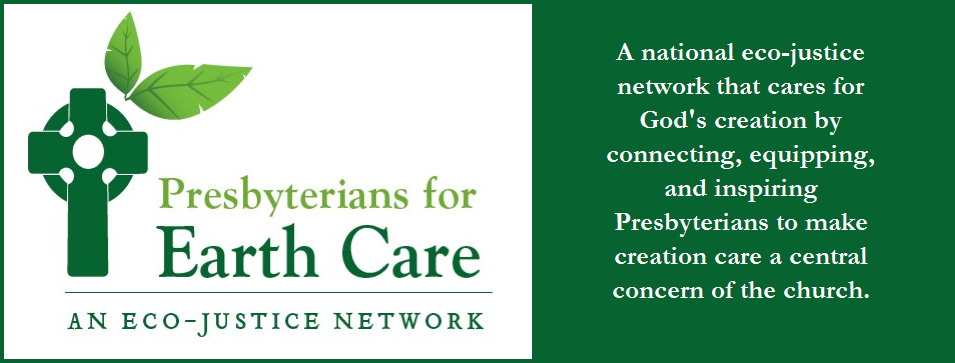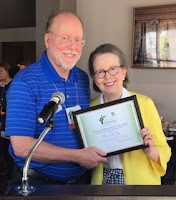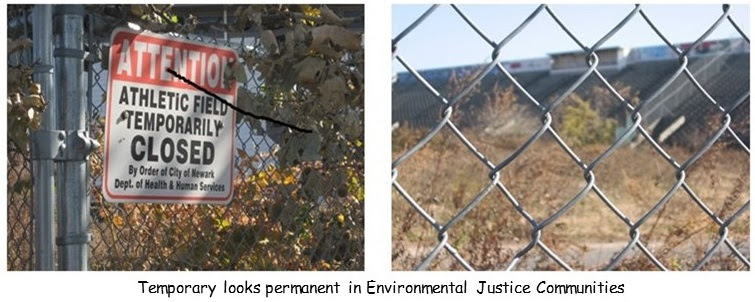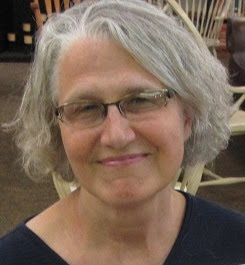PEC Honors Three Award Winners at
General Assembly Luncheon
Two deserving individuals and one organization were recognized for their exceptional environmental achievements at the Presbyterians for Earth Care (PEC) Luncheon on June 19 at the 223rdGeneral Assembly (GA) in St. Louis. The William Gibson Eco-Justice Award was presented to Pam McVety, long time Presbyterian and climate activist. Sarah E. Ogletree received the Emerging Earth Care Leader Award for a young adult, and Interfaith Partners for the Chesapeake received the Restoring Creation Award for an organization. PEC’s Annual Award Winners received a framed certificate, suitable for hanging, and free registration to PEC’s upcoming national conference, “Peace for the Earth,” August 6-9, 2019 in Stony Point, New York. More about each of the award winners is below.
Pam McVety, William Gibson Eco-Justice Award
Pam is a member of First Presbyterian Church in Tallahassee, Florida where she is the chief advocate within the church for action related to stewardship of the earth and climate change mitigation. At the Presbytery level, Pam served as the Stewardship of Creation Enabler for the Florida Presbytery for over 15 years. She chaired the Energy Policy Resolution Team for the Presbyterian Church (USA) to rewrite the denomination’s energy policy in 2004-2005 and wrote and lobbied for passage of a 2006 GA resolution for Presbyterians to go carbon neutral. She personally worked with the Presbyterian Foundation for the creation of a Fossil Fuel Free investment option. Pam continues to stress the moral and scientific need to address the issue of climate change through testimony at commission and legislative meetings and is a frequent lecturer on climate change science. This award is one of numerous recognitions that Pam has received over the course of her 30-year public service career in state government and devoted volunteer work.
Sarah E. Ogletree, Emerging Earth Care Leader
Sarah is entering her third year as a student at Wake Forest University School of Divinity in North Carolina where she will receive a Master of Divinity with a concentration in ecology in May 2019. As an applicant, she was recognized as a strong candidate who demonstrated exceptional promise in religious leadership and strong academic ability with the Jeanette Wallace Hyde Award that provided full tuition and a $5,000 annual stipend for two years. Sarah was also a co-leader of the School of Divinity’s environmental student organization. Sarah has completed internships in religious education at both Cullowhee United Methodist Church and First Baptist Church of Sylva and for the faith-based environmental non-profit, the Creation Care Alliance of Western North Carolina (CCAWNC). Sarah is also an accomplished bluegrass musician and played fiddle and sang with her husband at a benefit concert for CCAWNC that she organized.
Interfaith Partners for the Chesapeake,
Restoring Creation Award
Interfaith Partners for the Chesapeake (IPC) is a non-profit interfaith organization that educates, supports and inspires people and communities of faith to advocate and care for the waters of the Chesapeake through policies and practices that promote a healthier environment and healthier people. Founded by two Presbyterians, it rapidly expanded to include Christians of different denominations and people of many faith traditions. The mission and programming of IPC has been built around three main strategic purposes:
• Emphasize Spiritual Connections: Forming Faithful Stewards
• Engage and Support Stewardship Action: Caring for Sacred Waters
• Equip People/Communities of Faith for Advocacy: Speaking Out.
Since its incorporation in 2013, IPC has grown to be an organization with a paid staff of four, that manages a half dozen on-going programs. IPC has reached 258 congregations in the Maryland-DC area since 2013 and worked with 1874 individuals, touching an estimated 42,000 people in the pews through a growing network of faith communities.
Congratulations to this year's winners!







